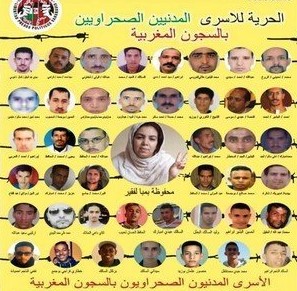
Quito (Ecuador), July 22, 2025 (SPS) – A symposium titled "Crimes Against Humanity and the Resistance of Oppressed Peoples Worldwide" was held at the Central University of Ecuador, with the participation of the Africa, Middle East, and Asia Studies Department of Tifariti University. The event brought together numerous experts and legal scholars who examined the historical and legal context of peoples' struggles against colonialism and the geopolitical interests of European powers in Africa and Asia.
Within this framework, Pablo de la Vega, Coordinator of the Africa, Middle East, and Asia Studies Department at Tifariti University, delivered a lecture on "Crimes Against Humanity in Palestine and Western Sahara."
The lecture analyzed the outcomes of the 1884–1885 Berlin Conference and the 1920 San Remo Conference, where colonial powers partitioned Africa and the Middle East. It also addressed the United Nations' role in decolonization processes, the significance of the UN General Assembly Resolution 1514 on granting independence to colonial countries and peoples, and the legal implications of rulings and advisory opinions from the International Court of Justice (ICJ) in The Hague. Additionally, it highlighted the pivotal role of national liberation movements in Africa and Asia.
During his presentation—organized by Ecuador’s multicultural university Amawtay Wasi - de la Vega underscored the parallels between Morocco’s occupation of Western Sahara and Israel’s occupation of Palestine.
In closing, he outlined the international legal foundations supporting the Sahrawi national liberation struggle, as affirmed by numerous UN General Assembly resolutions, including those of the Fourth Committee, the Security Council, and the UN Special Committee on Decolonization.
The event also honored the late South African leader Nelson Mandela on the International Day bearing his name, established by the UN General Assembly in Resolution 64/13 (2019).
Amawtay Wasi University (Ecuador) and Tifariti University’s Africa, Middle East, and Asia Studies Department announced plans to collaborate on future research concerning the current global landscape and the emergence of a multipolar world.



